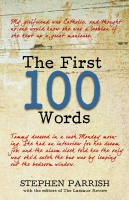 he day my heart broke was the day I decided to become a writer. From the age of ten I’d wanted to be an astronaut. Granted, the choice wasn’t very original, but originality didn’t concern me at ten, the stars and planets did. It was at ten I received my first eyeglasses. Until then I had only been able to see the brightest stars, maybe twenty or so. The first time I went outside at night wearing glasses the view overwhelmed me.
he day my heart broke was the day I decided to become a writer. From the age of ten I’d wanted to be an astronaut. Granted, the choice wasn’t very original, but originality didn’t concern me at ten, the stars and planets did. It was at ten I received my first eyeglasses. Until then I had only been able to see the brightest stars, maybe twenty or so. The first time I went outside at night wearing glasses the view overwhelmed me.
We lived in the country, where stars were dense and the term “light pollution” meant “lightly polluted” and nothing more. My late mother wrote a story once in which she compared watching the night sky to viewing a bright light through a threadbare blanket. And there you have it.
The age of ten is also when my mother gave me my first telescope.
There are any number of legitimate reasons we yearn for our youth. Life always seems simpler the further back you go, even if it’s only due to editing. Also, the younger you are, the farther you are from that pesky headstone. But what I miss most is first-time experiences, events that lose a little bit of their magic with each reiteration. One such event for me was pointing my telescope at Jupiter and seeing the four Galilean moons.
Stumbling from the front yard into the family room, I breathlessly described the experience to my family and invited them to come see for themselves. No one turned away from the TV.
I poured through books on astronomy, caressing photographs and illustrations of the planets. I dreamed of collecting rocks on distant worlds. When I was fifteen I began flying lessons, and when I turned sixteen, the youngest allowed, I had my first solo flight. I was still too young to drive a car, so my dad had to take me to the airport.
Now if you recall, the title of this piece is “The Day Your Heart Breaks.”
It was the eyesight. I should have known it would be a problem, but I was in denial. How could something so mundane as prescription eyewear stand between a boy and his dream? The day my heart broke was the day I heard back from my senator’s Air Force Academy nominating committee, announcing that my nearsightedness disqualified me for admission. At the time, most astronauts were still military test pilots.
That evening I went for a walk in the woods behind my house and gave myself time to grieve. The crickets matched the stars in number, or so their racket made it seem, and a Bobwhite called incessantly. I tried to track down a Whippoorwill, but the sound of its call remained distant no matter how far I wandered. Finally I went home and trudged upstairs to my room.
That’s when it struck me how many novels I owned. As though they’d been invisible the whole time. Novels filled bookshelves, novels were piled on the floor, novels spilled across my nightstand. Lined up on the headboard of my bed were novels. Novels were stacked in the closet. They even occupied a couple of dresser drawers. There was no room on my desk to do anything, because its surface was covered with novels.
Turns out, a Whippoorwill is as elusive as any star. A cricket bug’s mossy world is as vast, to the cricket bug, as the heavens are to us. And drawing comparisons between the majestic vault of night and a threadbare blanket is every bit as noble as trailblazing frontiers on Ganymede and Callisto.
 Stephen Parrish is the editor of The Lascaux Review. His most recent publication is The First 100 Words, available from Amazon or free when entering a Lascaux contest.
Stephen Parrish is the editor of The Lascaux Review. His most recent publication is The First 100 Words, available from Amazon or free when entering a Lascaux contest.



